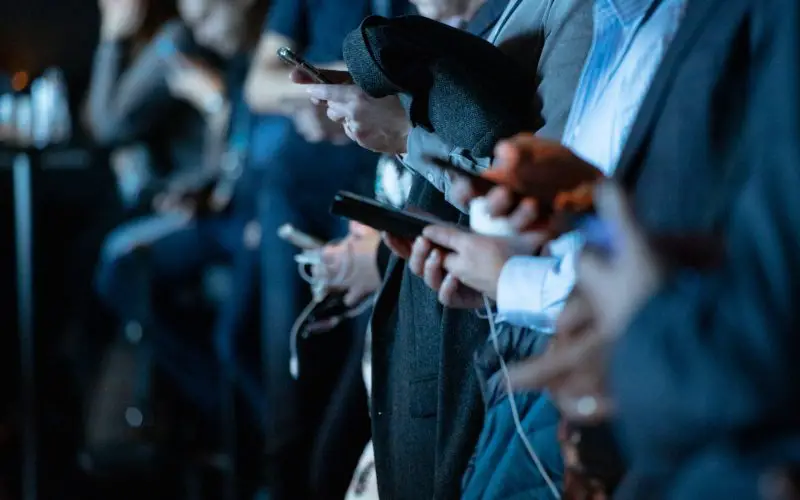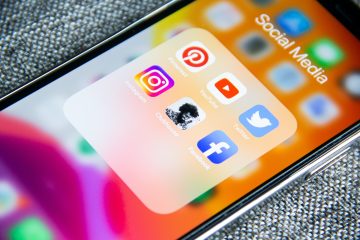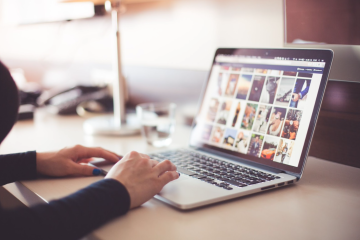In this article, we talk to People Who Don’t Use Social Media and take a closer look at the pros and cons of social media as well as some reasons why you may want to stay away from it.
Suppose we have never seen someone in person, thanks to social media, we can spend hours on their profile and get a first impression of them, imagine their personality, and much more. How many people have their love in the last 20 years, thanks to Facebook, Twitter, Instagram, or other social media platforms?
I’ve met 100% of my girlfriends thanks to the first contact on social networks: a direct message on Twitter, a message on Facebook chat, and many likes on Instagram; we all know how it works.
Introduction
Social media has become a ubiquitous part of modern life, connecting people from all over the world and allowing them to share their thoughts, experiences, and lives with each other. With billions of active users across the globe, social media has become a powerful tool for communication and self-expression.
Despite its popularity, however, not everyone has embraced social media. In this article, we will explore why some people choose not to use social media and the various factors that contribute to this decision. Whether you’re an avid social media user or someone who prefers to steer clear of these platforms, it’s important to understand the reasons why some people opt out of this digital world.
Fear of Privacy Concerns
One of the main reasons why some people choose not to use social media is privacy concerns. With the rise of social media, people have become increasingly concerned about the security of their personal information and the ways in which it is being used and shared. Worries about the safety of personal information being shared on social media platforms have led many people to avoid these platforms altogether.
Fear of being hacked or scammed is another reason why some people choose not to use social media. With the rise of cybercrime, many people are wary of the risks associated with sharing personal information online. The fear of being targeted by scammers or having their identities stolen has led many people to avoid social media altogether.
Finally, lack of control over personal data is another reason why some people choose not to use social media. With companies collecting and using vast amounts of personal information for advertising purposes, many people feel that they have no control over how their data is being used. This lack of control has led some people to avoid social media in order to protect their privacy.
Disinterest in Social Media
Some people choose not to use social media because they simply find it uninteresting. They may find the content repetitive and unengaging, leading to boredom with the platform. Additionally, some people prefer face-to-face interactions over online interactions, finding more value and satisfaction in real-life socializing. They may feel that social media detracts from in-person relationships and therefore choose not to use it.
Others view social media as a time waste, taking away valuable time that could be spent on other activities. They may feel that social media does not add value to their lives and therefore choose to avoid it.
It is important to note that not everyone feels the same way about social media. Some people find it to be a valuable tool for staying connected with friends and family, discovering new information and interests, and expressing themselves creatively. However, for those who are disinterested, social media simply does not hold the same appeal.
Technical Limitations
For some people, the use of social media is limited by technical difficulties. Some individuals may not have access to technology or the internet, making it difficult for them to use social media platforms. For others, the technology itself may be challenging to use. This may be due to a lack of familiarity with the platform, difficulty navigating its features, or simply a lack of technical skills and knowledge.
In addition, some people may have trouble with the technical requirements necessary to use social media, such as having a stable internet connection or owning a device that can support the platform. This can prevent them from using social media and limit their exposure to the digital world.
It is important to acknowledge that not everyone has equal access to technology and the internet and that these limitations can impact their ability to participate in online communities and activities. Understanding the technical barriers that some individuals face is important in ensuring that technology is accessible and inclusive for all.
Personal Beliefs and Values
For some individuals, personal beliefs and values play a significant role in their decision not to use social media. They may disagree with the impact that social media has on society, such as its potential to spread misinformation or contribute to the erosion of privacy. They may also object to the content that is available on social media, such as the promotion of negativity or the glorification of certain behaviors that they find morally or ethically objectionable.
Others may have personal beliefs that do not align with the values promoted by social media companies, such as the monetization of user data or the manipulation of user behavior. They may choose not to participate in a system that they believe undermines their values and beliefs.
It is important to recognize that everyone has unique values and beliefs and that these can influence their perspectives on social media and technology. Understanding the reasons why someone may choose not to use social media, including their personal values and beliefs, is key to a nuanced and informed discussion of the topic.
People Who Don’t Use Social Media views on Jobs
Now let’s move on to some more important things like jobs. Without social networks, I wouldn’t have gotten get my latest job; almost all of them depend on the regular use of social media, and the platforms allowed me to connect for the first time. Some international companies even admit that they look at their candidates’ social networks to see if they are crazy or to get a better understanding of their personalities.
Every day more and more media devotes a large part of their budget to creating content for social networks and increasing their followers. Without daily access to networks, learning about events becomes complicated.
We spoke to some People Who Don’t Use Social Media to tell us about their decision:
A non-social media user’s Views
Nicolas Suarez, 27 years of music and audio-visual producer.
Voice: What do you think about social media?
They annoyed me with the fact that they waste your time and do nothing.
Have you ever tried them?
Yes, I used hi5 about ten years ago. I used it for maybe six months, and then I stopped it. After that, I tried MySpace and Pure Volume for a year, mainly to promote music projects because I was working on one at the time. But nothing more.
You work with music. Don’t you think there must be a social network?
Yes, of course, it is because of the great digital marketing potential in the music market. My friends and colleagues have complained that I don’t run any social networks, and they are trying to convince me.
Do you have a Couple?
Yes, I have, but I met my girlfriend through some friends, she was a friend of a friend.
Which social network will you never use?
Snapchat.
Another Scenario
A, 60 years old. Musician
Voice: Have you ever used social networks or decided to delete them?
I never used them; they didn’t exist when I was born, and I can live in peace without them. And sometimes I like the idea of writing old-fashioned letters. I think it’s more memorable.
Aren’t you looking forward to using them?
Of course, it made me curious, and I think it’s normal. Almost all my friends use it and spend their lives there, but it didn’t kill me. When I need something to do with social networks, I ask for help from my children and my wife, who specializes in it.
Don’t you need networks in your work?
A musician by profession, I have worked in the culture department of the Venezuelan government for more than 25 years and have a chemical products business. I don’t need them or need to use them; usually, schedules are already set in the studio, and any questions are resolved by calling.
The Semi-Last One
Marcos Marin, 18 years old. Graphic design student.
Voice: At 18, it’s hard to believe you don’t network. How did you make that decision?
Yeah, Al, that sounds pretty crap to me, Looks like BT is not for me either. I decided not to use them anymore when I realized I had a lot of “friends” but didn’t talk to any of them in the end. I walked away from them. Platforms like Skype and Steam keep me in touch with people who are interested in me. I use email a lot.
You are the first person I have heard of using Steam. Doesn’t that sound too far away to you?
Hahaha, yes, Steam is a multiplayer service and digital distribution platform. It also offers ways to interact with community members who use the games it offers. I prefer to use one of the standard social networks such as Twitter.
Do you have a girlfriend?
Yes, she recently left the country. I met her in high school, she was an exchange student, and since she doesn’t speak Spanish, she did a lot with me because I’m bilingual. That’s where the relationship came from. She doesn’t even use the net.
Mayo Clark, 30 years old. Golf Tournament Coordinator
Voice: Have you ever used social media?
I opened my Facebook account in 2007. I did everything: I party, university, graduated, traveling to Europe, uploading pictures of boyfriends. My family suffered greatly in 2012 due to insecurity in Mexico, and we decided to shut down our network together.
After the threat, I reopened FB, and that was when I began to see the network differently. What I saw annoyed me: False engagement rings and congratulations, messages to babies who have not yet been born.
The “amazing lives” of early school classmates you already know aren’t true, very personal frustrating comments, messages between couples that should be private, and lots of pictures of women seeking approval.
I found it obscene. So knowing full well the dangers of forgetting all my “friends,” I decided to close all my accounts at once without sending farewell messages – and never feel like I was in too much useless information. I’m drowning. I left them open on LinkedIn, it’s a great way to get a job when you travel a lot, and indeed, no one cheats on you.
Didn’t you regret it later?
After that, I had some evacuation syndrome, and it took all my strength not to reopen them. It was a strange feeling of loneliness, no one invites you anywhere, but at the same time, it is a pleasure to know that your life is yours and no one else’s.
How do you stay in touch with your family and friends?
WhatsApp! This is a blessing. I have groups for everything.
Don’t you need networks in your work?
Ironically, I am certified as a community manager, and I am fully trained to handle networks. I am a marketer. It is my responsibility to keep it up to date. However, due to my work shift, there is a situation that strikes me like pearls.
Since I am in the field of action, I take pictures on the networks, but I can’t handle them because the golf club has communication devices. So a thousand pictures taken from my phone are floating in the networks, but I have no idea which ones.
Are you in a relationship?
Yes, I live with my boyfriend we have been in a relationship for about 2 years. None of us use social media.
Which social network are you the furthers from using?
Tinder, how terrible.
The Last One
Erin Cardinals, a 23-year law and work student.
Voice: Have you ever used social media?
No, I’m not interested in using them. I’m not going to tell you that I didn’t feel a little curious, but I didn’t create an account on social networks.
How do you stay in touch with your family and friends?
In an old-fashioned way, I would call everyone and ask them what they were doing and find out about them. They always tell me I’m the only person still making phone calls to find out how they’re doing.
Are you in a relationship?
Not at the moment. Maybe when I’m done with college.
Which social network are you farthest from using?
Funny Snapchat. How does it work? I still don’t understand why people use it.
Reasons for not using social media
Social networks are among the most popular internet applications. But why are there people who do not use social networks? Is the refusal of use due to the insufficient handling of personal data by operators of social networks? Or are they simply overwhelmed by too much advertising and information? These are just a few of the questions answered by the social media study.
For the “Social Media Study – Reasons for not using social networks”, 129 non-users were asked about their reasons for not using social media, their attitude towards the use, and more.
In this open-ended question, the non-users surveyed were able to state the three main reasons for their refusal to use it. The information provided was bundled and distributed among the categories shown above as follows: data protection (29.2 percent), no time or no desire (20.8 percent), advertising (16.7 percent), friendships in the real offline -world are preferred (16.7 percent), information overload (12.5 percent) and other reasons (4.2 percent).
What happens when you don’t use social media?
Digital detox – living without smartphones and social media for days has become a trend. But what effect does it really have if you temporarily do without Facebook, Instagram, and other social media platforms?
For many people, constantly reaching for their smartphone has become a habit. Some even say an addiction.
If it is not within sight and within reach, something is missing. Social media play a crucial role in this. Facebook, Twitter and Instagram have become an integral part of our everyday lives over the past ten years. But during this time, their public perception has also changed.
While social networks were initially applauded for their ability to bring people into contact with one another, they are now increasingly being criticized: some of the allegations are that they make their users unhappy, stress them out, and polarize them politically.
A real counter-movement has developed from this. Initiatives and organizations warn against the (excessive) use of smartphones and social media.
Under the keyword “Digital Detox”, we share tips on digital detoxification. These include, for example, smartphone-free times or locations. The Center for Humane Technology, founded by former Google employee Tristan Harris, advises overwhelmed smartphone users, among other things, to limit the number of their notifications, not to charge the smartphone in the bedroom or to make an abrupt withdrawal and all social media apps from the smartphone to be deleted and – if at all – to be used on the computer.
In the fight against being overwhelmed by the constant consumption of information, smartphone fasting also promises a remedy.
Social media: advantages and disadvantages of social networks
Staying in touch with others – that can only be a good thing, right? The original meaning and purpose of social networks/social media are quite promising and it is of course fun to “post” on them or to “like” other people’s posts.
At the same time, social media also has disadvantages that users should always keep in mind. What speaks for them, and what speaks against them?
These are the benefits of social media
Keeping in touch is easy
You can talk to friends and family around the world in real-time, easily and mostly for free. Programs like Skype, Facetime, Google Meet, or WhatsApp make it possible – and all you need is an internet camera on your computer or a smartphone.
Connect quickly with social networks
If you move to another city or your friends live further away, you can make new contacts through social media. In countless groups and communities (online communities) you will certainly find one or the other nice acquaintance.
Revive friendships
On social networks, you can just type in names and find old-time friends. The barrier to texting someone you haven’t had contact with for a long time is much lower than calling them.
Get lots of opinions online
Discussing in forums can be helpful or beneficial in many situations in life. If you have a question about a certain topic, you can ask several people at the same time and get complex opinions.
Live out your creativity on social networks
Another advantage of social media is that you can let off steam there and upload your own content. You can upload videos yourself to YouTube or other platforms and share them with others. This not only shows your creativity but also allows you to build your own community.
The disadvantages of social media
Anyone who uses social media should be aware of the following things.
Being online means living more transparently
If you are often on social networks, you also leave many traces. Everyone can take part in your life if you are available at all times and sometimes learn more about you than you may realize.
Control is lost
Unfortunately, you cannot trace exactly where you are leaving your tracks and therefore do not know who might be able to use this information to your detriment.
Cyberbullying is a serious problem
Depending on the contacts you engage in, you may experience insults, verbal abuse, or intrusive behavior. In that case, be sure to take a screenshot, i.e. photograph the page (digitally) to secure evidence and take action against the bully. Entries on the Internet can be made invisible, but not deleted.
Don’t give the risk of burglary a chance
Did you simply publish your current location via GPS (Global Positioning System, a global navigation satellite system for determining position)? This is possible in social networks. Others (sometimes also strangers) then see you when you are not at home.
This information could be exploited by burglars, for example.
Incorrect data protection of social media
This is a major criticism of many social networks because data is often passed on to third parties for advertising purposes. Therefore, it is best to use every privacy setting and check regularly whether anything has changed.
Warning: Chatting is addictive!
The danger of neglecting real friends in real meetings is certainly not as great as with teenagers. But chatting is tantalizingly convenient. Especially if you have constant access through your smartphone. So try to always give yourself breaks and to be on the road analog again every now and then.








